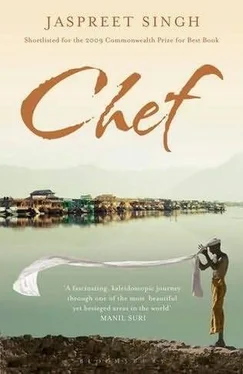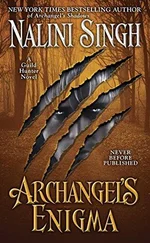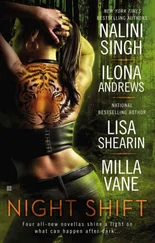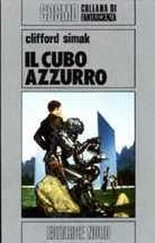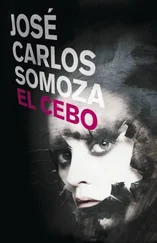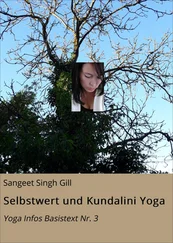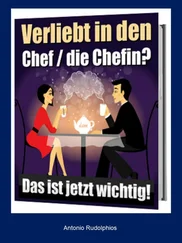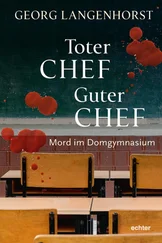This music makes me think of the epic Mahabharata, he said. When they grew old the Pandavas headed towards the mountains, climbing higher and higher towards the Gates of Heaven. No one followed them, only a stray dog. The brothers fell one by one on the steep trail. Only Yudhister, the eldest, and the dog made it to the Gates. You can enter, said the gatekeeper. But the animal is not allowed in Heaven. The dog followed me all the way, protested Yudhister, my brothers gave up, but this creature was my constant companion. I will not enter alone.
‘Did he?’ I asked.
Chef was silent. He walked me through loose snow to a deep crevasse, and pointed at the seracs (on the other side), and said that the crevasse was really the mouth of the glacier, and the seracs were its white teeth. This is how the glacier eats, he said.
The dog started running around the crevasse.
‘Don’t worry,’ he said.
‘How deep is it, Chef?’
He took a pebble out of his parka and dropped it.
We heard a sound twenty seconds after the pebble was lost in the crevasse.
‘What do you think about the glacier?’
‘From the helicopter it looked like a giant man’s tongue outside his mouth, licking a woman’s navel. Siachen was a big tattoo on a pregnant belly.’
He stared at me.
‘You read my journal,’ he said.
I didn’t respond.
‘You little Sikh, you ma-dar-chod, you read my journal?’
It was so cold words froze in my mouth. Suddenly I saw the glacier as a huge living organism about to claim me, about to claim us all. This organism paralyzed my thoughts. Father, I cried. Father, I screamed.
‘Hit me,’ I said. ‘Please hit me.’
He put his arm around my shoulder. I felt it barely because of all the layers between us.
‘Hit me.’
‘I have already hit you,’ Chef laughed.
It was a wild laugh. White fumes came out of his mouth. His lips were cracked.
‘Hit me,’ I said.
‘I already hit you. Not enough? It hurts real hard where I hit you. Don’t you know? Don’t you? I hit you with my writing.’
‘I am confused,’ I said.
‘You read my notebook because you wanted to read it. But I would have given it to you anyways. I, too, wanted you to read it.’
‘You are joking, Chef?’
‘Does it hurt?’
‘But, why? Why did you want me to read it?’
‘Because…’
Before he could respond I felt my anger rising.
‘Because otherwise men are strangers to one other,’ he said. ‘Even if we carry the same wounds, we remain strangers. We can’t express ourselves properly. Not even our anger. I was able to write certain things down because I was writing them for you. I was angry at you. Angry at myself. Angry at so many people. But.’
‘But, what?’
‘I am no longer. I request only one thing. Please don’t be angry at me. You are not just one man. I have always seen you as two. You are my beloved, and you are also my witness.’
‘Witness?’
‘Now I can leave.’
‘Where?’
‘When I am gone, you must not mourn me.’
It was then he shared with me the plan. Standing by the crevasse he shared the details in strict confidence. I begged him not to carry it out. I am not going to be a party to this, I said. Listen to me, he said. If your father were alive, he would have done exactly what I am going to do. Exact same action. Listen to me, you Sikh. I was your teacher. When a teacher opens his mouth the student listens. When a teacher asks for dakshina the student must provide the fees. Do you know the Mahabharata? he asked. It is very long, I said. What do you mean long? You kids don’t read it these days, but let me tell you in the Mahabharata most people believe that the main story is brothers fighting brothers over the kingdom. Nothing can be further from the truth. The real story is that of the black boy. The low-caste boy. The boy was born a talented archer and he approached the Brahmin teacher to advance his skill. The Brahmin used to teach archery to the king’s sons. He said no to the black boy. So, the boy returned to the jungle, he made a clay figure of the Brahmin, and in the presence of the clay figure and a solitary tree the boy taught himself archery, he became more skilled than the king’s sons, as a result they grew jealous and their teacher grew worried, so the Brahmin approached the black boy and demanded his fee. The boy was pleased, the teacher had accepted him finally as his student, he was willing to give anything the guru asked for. One is supposed to offer one’s life if the teacher asks for it. The Brahmin did not ask the boy his life, all he wanted was the boy’s right thumb. That very instant the student took a sharp knife and cut off his right thumb (which was as black as his face) and offered it to his teacher. He became a cripple, he was never able to practice archery again. Understand? I am not asking you, Kirpal, to offer me your thumb or the fingers of your hand, all I need you to do is this one thing. Be my witness.
I could not return Chef Kishen’s gaze, which penetrated through me. Life is so precious, I said. I know, he said. Will any harm come to General Sahib? I asked him again. No, he assured me, no harm, not a single hair that belongs to him will be harmed.
By the end of the day Chef was gone.
Khatam.
Finished.
Everything is ready. The inspection of two battalions on the glacier is done. The snow-scooter ride is over. There was a fog on Siachen the previous night, I heard. Now the fog has gone, the peaks are visible, K2 is visible, the sun is bright, so bright it brings black dots in front of eyes. The sky is cobalt blue.
The General and the Defense Minister have started eating lunch. The two men are in the Officers’ tent. The colonel sends a boy to the kitchen. The Defense Minister would like to have a word with the cook. I look at Chef Kishen. He has done the cooking with his own hands. I look at his four assistants, then at Chef again. He surveys me with piercing eyes. I notice the determination in them, and that is why I decide to go ahead with the plan.
I go bundled to the Officers’ tent. There is sushi in front of them. I overhear the General explaining to the Minister the art of growing bonsai trees. I overhear the Minister’s question on ‘tent windows’. Gen Sahib’s response: ‘The Swiss have developed new technology, sir. As I mentioned before, from here we are able to see the men outside, but they can’t see us… Yes, yes, Kip, come in.’ I salute. ‘Shahbash, Kip! Good food!’ I tell Sahib that Chef Kishen did all the cooking. If anyone deserves praise – it is him. Not me. Briefly I survey the sushi on the table, and my mouth waters. Cuttlefish. Hamaguri. Sashimi-Salmon Rose. The General asks me to bring along Kishen.
I return to fetch him.
They are ready.
Chef Kishen’s four assistants salute him. They call him Commander. The Commander is in full military dress. His shoes are impeccably polished.
It is minus 49 outside. Useless tears in my eyes.
On the way Commander Kishen stops by the Soldiers’ tent, and stands before the red letter-box. From his pocket he pulls out two letters, one addressed to his children, and the other to his wife. He laughs a bit. Like a good man who is forced by circumstances to commit evil in a Bombay film.
They march to the Officers’ tent. I go with them.
Savdhan.
Vishram.
They march over the crunching snow, faces hidden, aprons whipping.
Left. Right. Left. Right.
Dayan. Bayan. Dayan. Bayan.
White plumes come out of our mouths.
We stop outside the Swiss tent.
I enter. The Commander and his assistants wait outside. Then: ‘Sir, Chef Kishen here,’ he says. ‘Permission to enter?’
Читать дальше
Конец ознакомительного отрывка
Купить книгу
